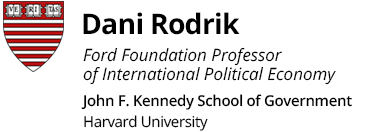When Ideas Trump Interests: Preferences, World Views, and Policy Innovations. The Journal of Economic Perspectives. 2014;28 (1) :189–208.
AbstractIdeas are strangely absent from modern models of political economy. In most prevailing theories of policy choice, the dominant role is instead played by "vested interests"—elites, lobbies, and rent-seeking groups which get their way at the expense of the general public. Any model of political economy in which organized interests do not figure prominently is likely to remain vacuous and incomplete. But it does not follow from this that interests are the ultimate determinant of political outcomes. Here I will challenge the notion that there is a well-defined mapping from "interests" to outcomes. This mapping depends on many unstated assumptions about the ideas that political agents have about: 1) what they are maximizing, 2) how the world works, and 3) the set of tools they have at their disposal to further their interests. Importantly, these ideas are subject to both manipulation and innovation, making them part of the political game. There is, in fact, a direct parallel, as I will show, between inventive activity in technology, which economists now routinely make endogenous in their models, and investment in persuasion and policy innovation in the political arena. I focus specifically on models professing to explain economic inefficiency and argue that outcomes in such models are determined as much by the ideas that elites are presumed to have on feasible strategies as by vested interests themselves. A corollary is that new ideas about policy—or policy entrepreneurship—can exert an independent effect on equilibrium outcomes even in the absence of changes in the configuration of political power. I conclude by discussing the sources of new ideas.
Winter 2014. An earlier draft was titled “Ideas and Interests in Political Economy.”

